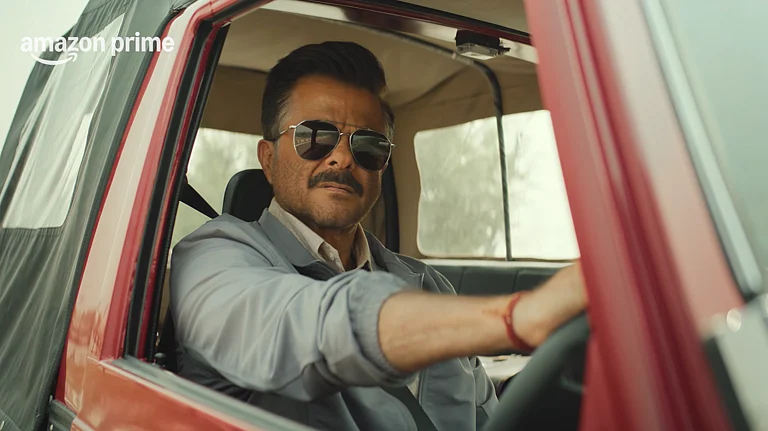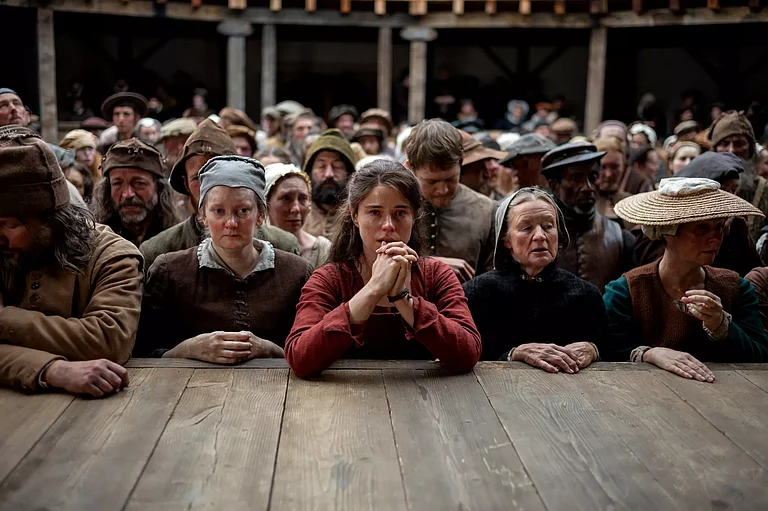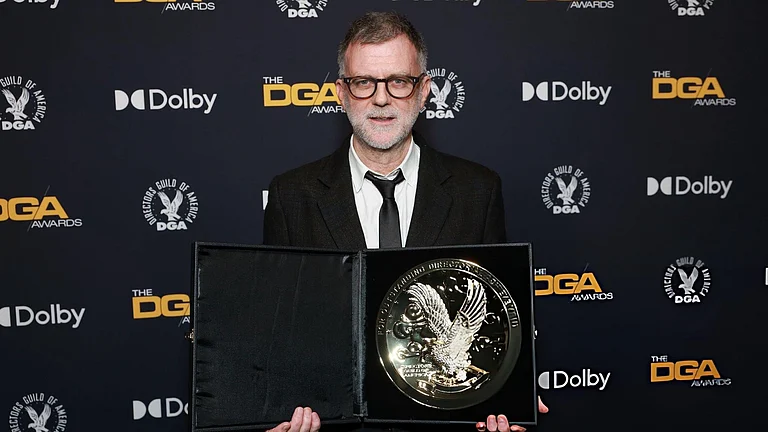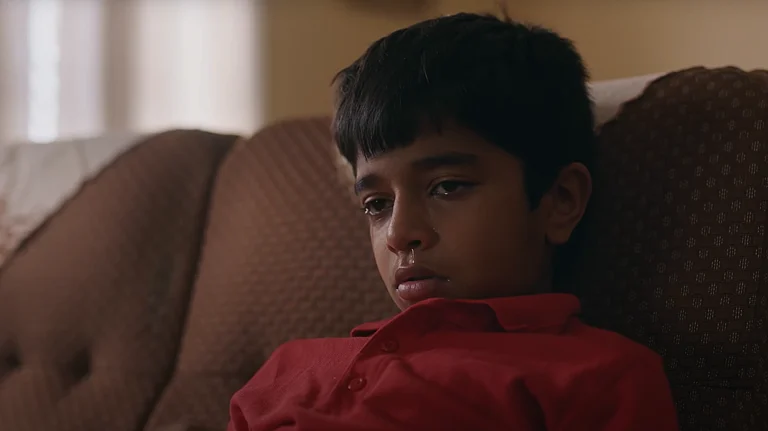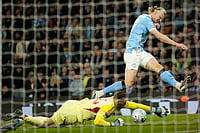
Summary of this article
Splitsville, directed by Michael Angelo Covino, premiered at Cannes 2025.
The film, released by Neon, is about the contradictions of human insecurity.
The film is a a screwball farce about four rich, confused individuals gleefully sabotaging themselves and one another.
Michael Angelo Covino’s Splitsville has no room for subtlety. It kicks off with a handjob, a car crash, and the subsequent death of a person and a relationship. From there, the film careens into more hijinks territory, blending lowbrow gags with a highbrow-adjacent comedy of errors, elevated by its slick visual style and relative unpredictability.
What begins as a satire of polyamory soon mutates into a screwball farce about four rich, confused individuals gleefully sabotaging themselves and one another, with commitment phobia standing in as the punchline.
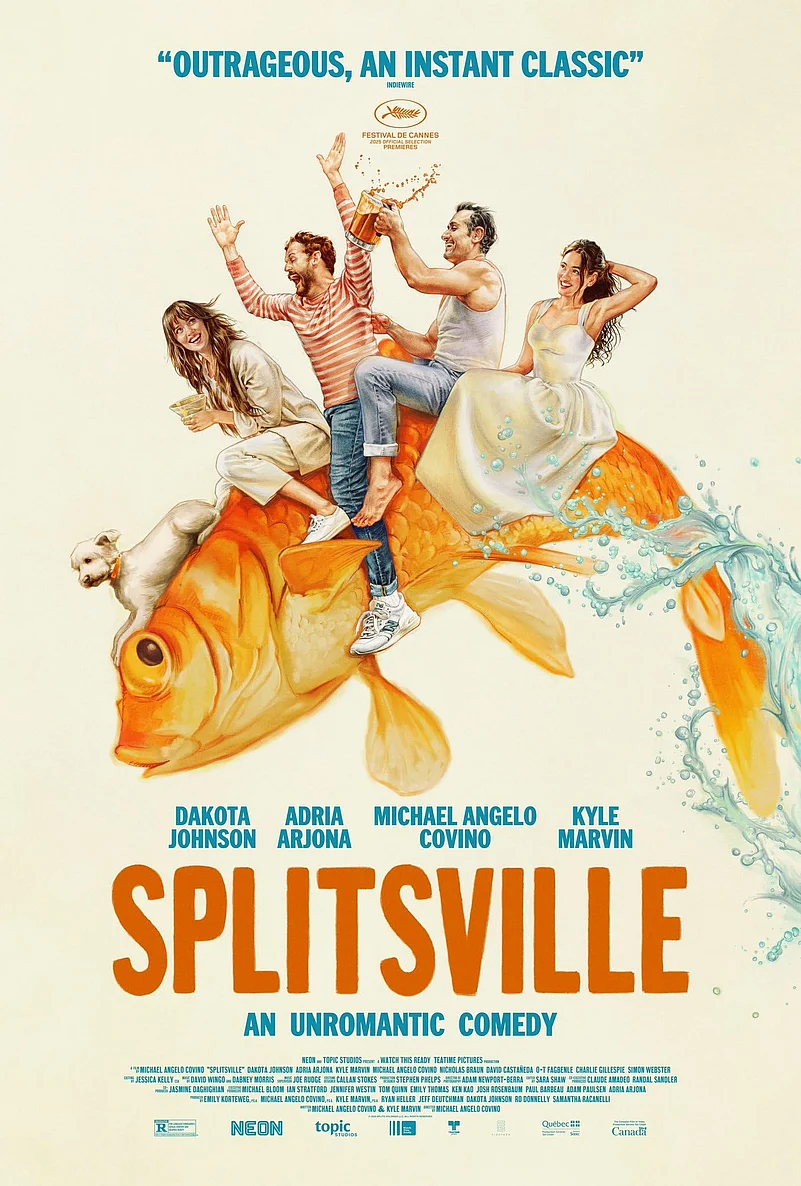
The film centres around Paul (Covino himself) and Carey (co-writer Kyle Marvin), whose bromance runs so deep it verges on the uncomfortable. Paul gamely checks every crevice of Carey’s body for ticks after Carey has jogged, sprinted, and swum across miles to get away from his wife, Ashley (Adria Arjona), who asked him for a divorce after a failed attempt at intimacy and a literal car wreck. When Carey finally makes it to Paul and Julie’s (Dakota Johnson) sprawling vacation home, he’s greeted with sympathy, camaraderie, and some good old fashioned ill-defined advice only very confused adults can give.
Paul and Julie proudly, and rather smugly, reveal that their marriage is open because it is more “realistic” and they are cool and evolved like that. Their rationale is of course fragile philosophy masking over deeper fractures. However, Carey, desperate to salvage his relationship, pitches the idea to Ashley; but not before sleeping with Julie.
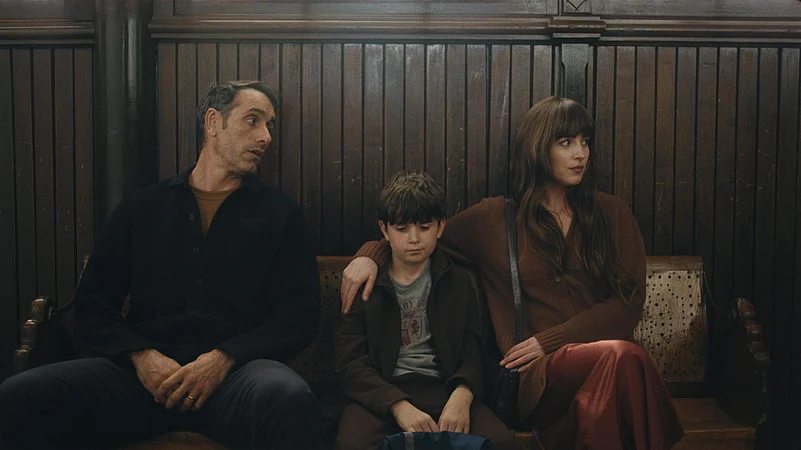
For all the nudity, raunch, and floppy penises on display, Splitsville is less about sex than it is about the contradictions of human insecurity. The four leads, who are various degrees of vapid and clueless, don’t know what they want; only that they’re terrified of losing what they already have. This understanding the film has about the fundamental fallacy of adulthood—that our ever-increasing ages automatically assign us some higher wisdom—is what ultimately gives it weight.
The film’s best jokes spring not from the act of non-monogamy itself but from the howlers and misunderstandings its protagonists breed. Polyamory here is just a distraction—the real story is about men who’ve married women out of their league, then flounder in increasingly ridiculous ways to keep them.
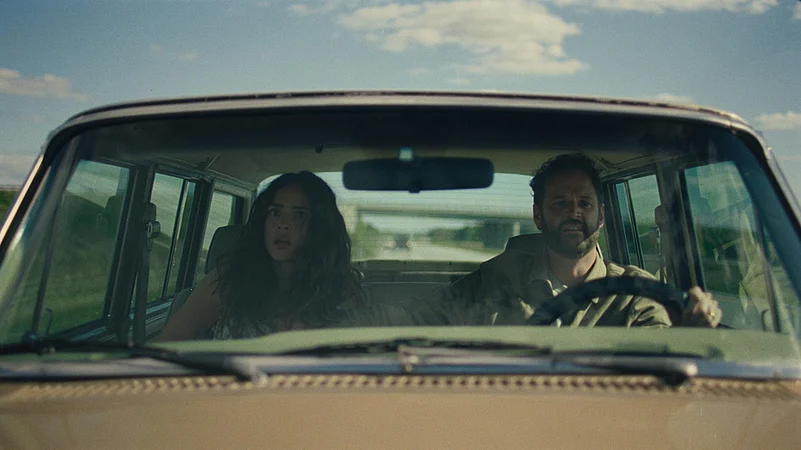
This is where Covino and Marvin’s script feels both retrograde and sharp. It harks back to pre-Kevin Can F**k Himself (2021-2022) era. On the one hand, it recalls the older tradition of screwball comedies, where immature male foibles fuel the chaos. On the other, the film resists making the women either victims or moral arbiters. Julie and Ashley are just as flawed, confused, and human as their partners.
Splitsville thrives in the territory of physical comedy. When Paul discovers Carey has slept with Julie, the fallout spirals into full slapstick. There is smashed furniture, shattered aquariums, scorched eyebrows courtesy of a makeshift blowtorch, and finally, the two men crashing through a glass window into a pool. It’s broad and cartoonish, and it works.
Elsewhere, the comedy sharpens into character-driven absurdity. Carey, ever the hapless “nice guy,” finds himself hanging out with Ashley’s roster of ex-lovers long after she’s moved on. They become his new social circle, a quietly humiliating reminder that Ashley, who doesn’t know what she wants herself, has again outpaced him emotionally (before coming full circle). The joke is also on Ashley, a life coach who also has a life coach, but needs to go through the motions of life just like anyone else to figure out what she really wants: Carey, who has now moved on to Julie who, in turn, is about to divorce Paul for committing financial fraud.
The tonal range between slapstick, satire, and cringey awkwardness is what keeps Splitsville on its feet. Even when a gag doesn’t land, there’s usually another one coming fast enough to keep things lively.
Johnson plays Julie with a mix of her signature breathy confidence and vulnerability that makes her less disdainful and oddly sympathetic. Arjona pulls laughs from the contradictions of a woman who markets clarity but lives in perpetual indecision. Covino and Marvin lean into their schlubby charm, milking every ounce of haplessness from Paul and Carey.
A sour note comes from Nicholas Braun’s cameo as Matt the Mentalist, one of Ashley’s many lovers. It may be a throwaway role but Braun’s off-screen sexual misconduct allegations cast a shadow that feels distracting, especially in a film so keyed into relational hypocrisy.
For all its manic energy, Splitsville sometimes struggles to sustain itself. After a while, the manic back-and-forth makes it feel like the film is running in place.
The film closes where the chaos began: Paul and Julie’s seaside vacation place. Only now, thanks to Paul’s financial downfall and recent prison-time, they’ve lost ownership. Instead of luxuriating, they’re Airbnb-ing at the place. They are still as privileged, as deluded, and as cushioned from any real consequences as they were at the start. Relationships reshuffle, break, and reform; but in the end, everyone drifts back to their original pairings. The grand detour of infidelity, betrayal, and chaos turns out to be much ado about nothing. And maybe that’s the final joke. For all their posturing about freedom, openness, and realism, these characters are still running in the same spot trying to outpace themselves.
The film’s final statement on modern relationships is a casually exhausted shrug—one made fun to watch thanks to the performances carefully curated to varying manic degrees.
Debiparna Chakraborty is a film, TV, and culture critic dissecting media at the intersection of gender, politics, and power.




